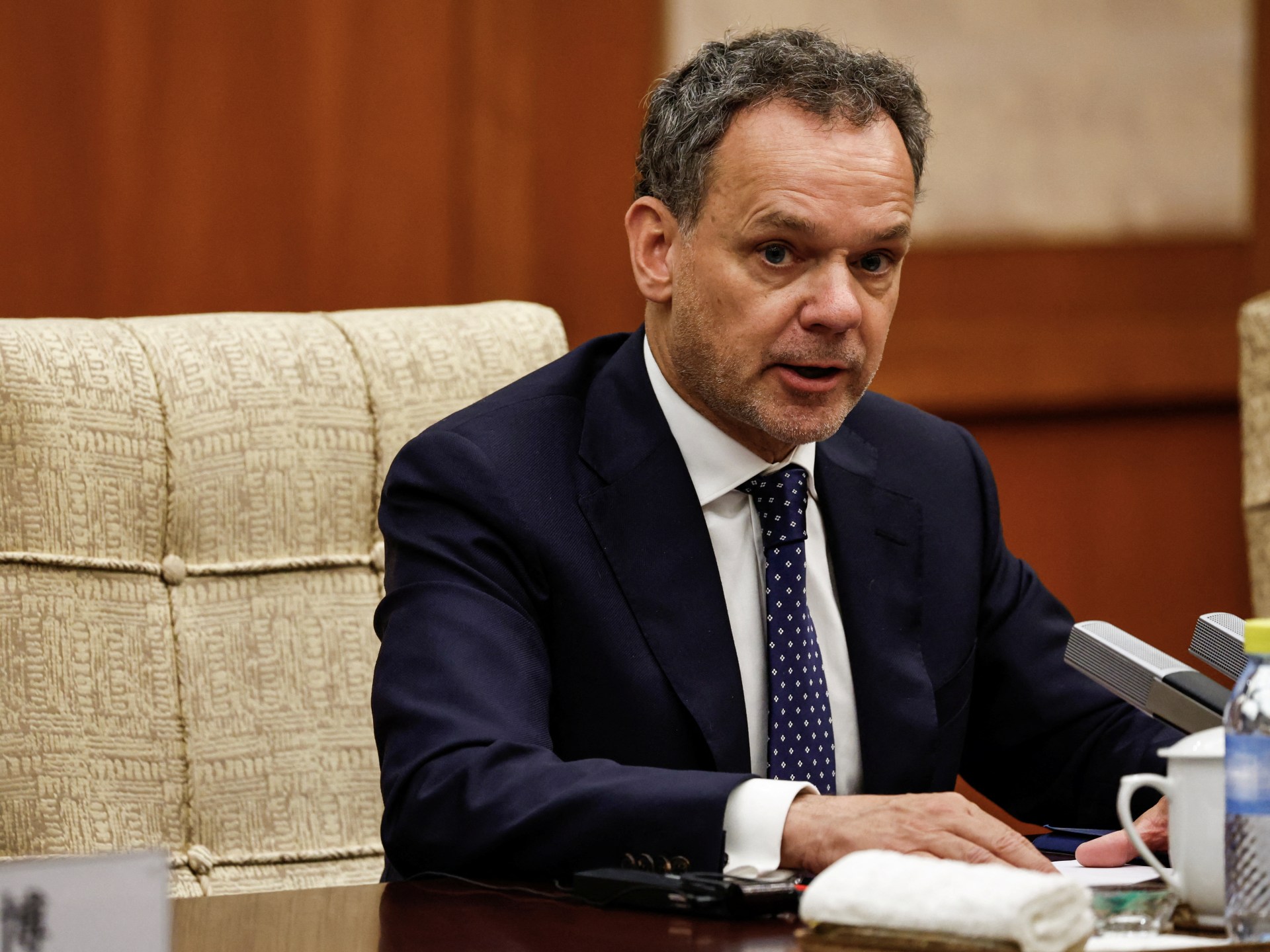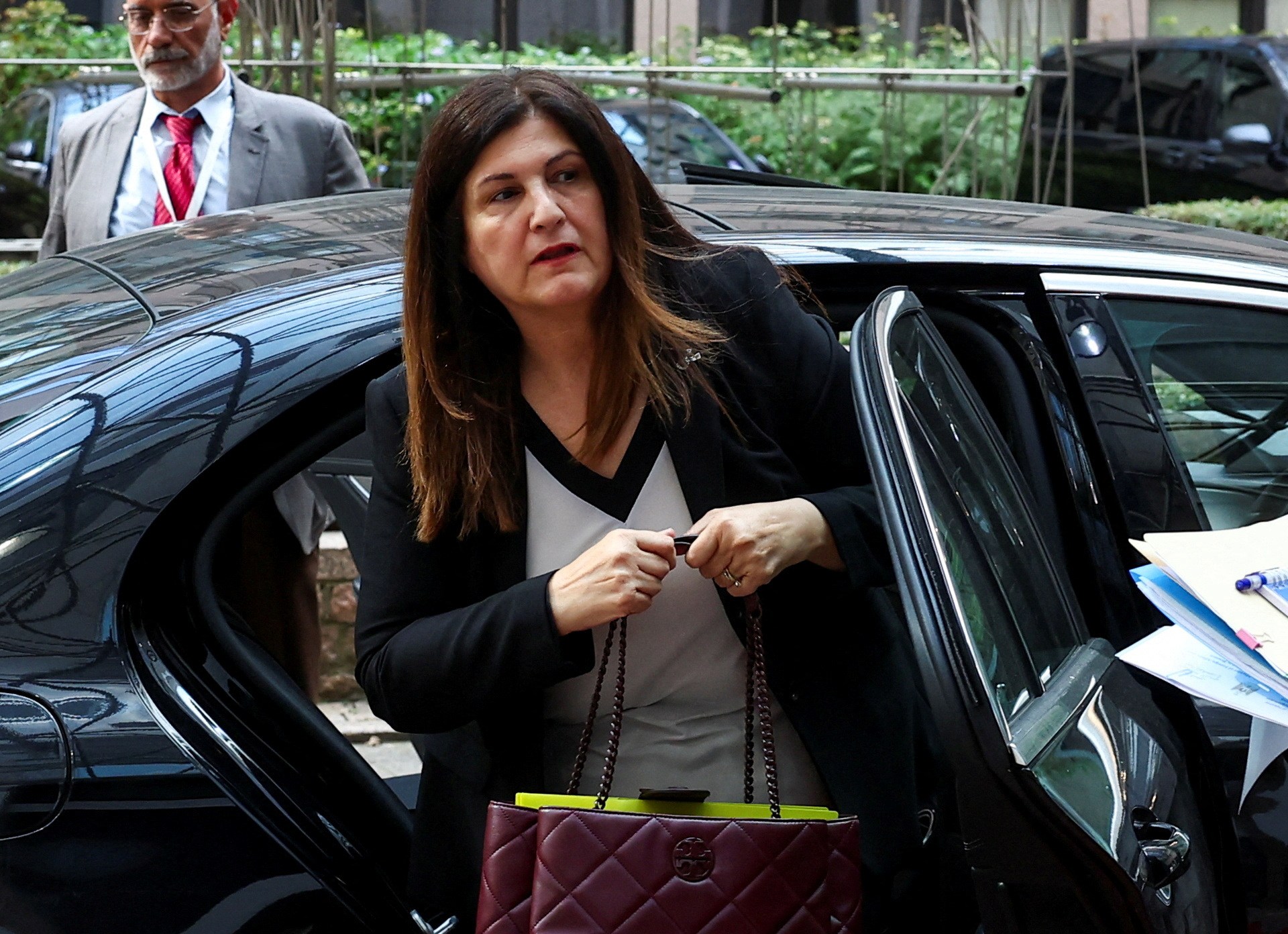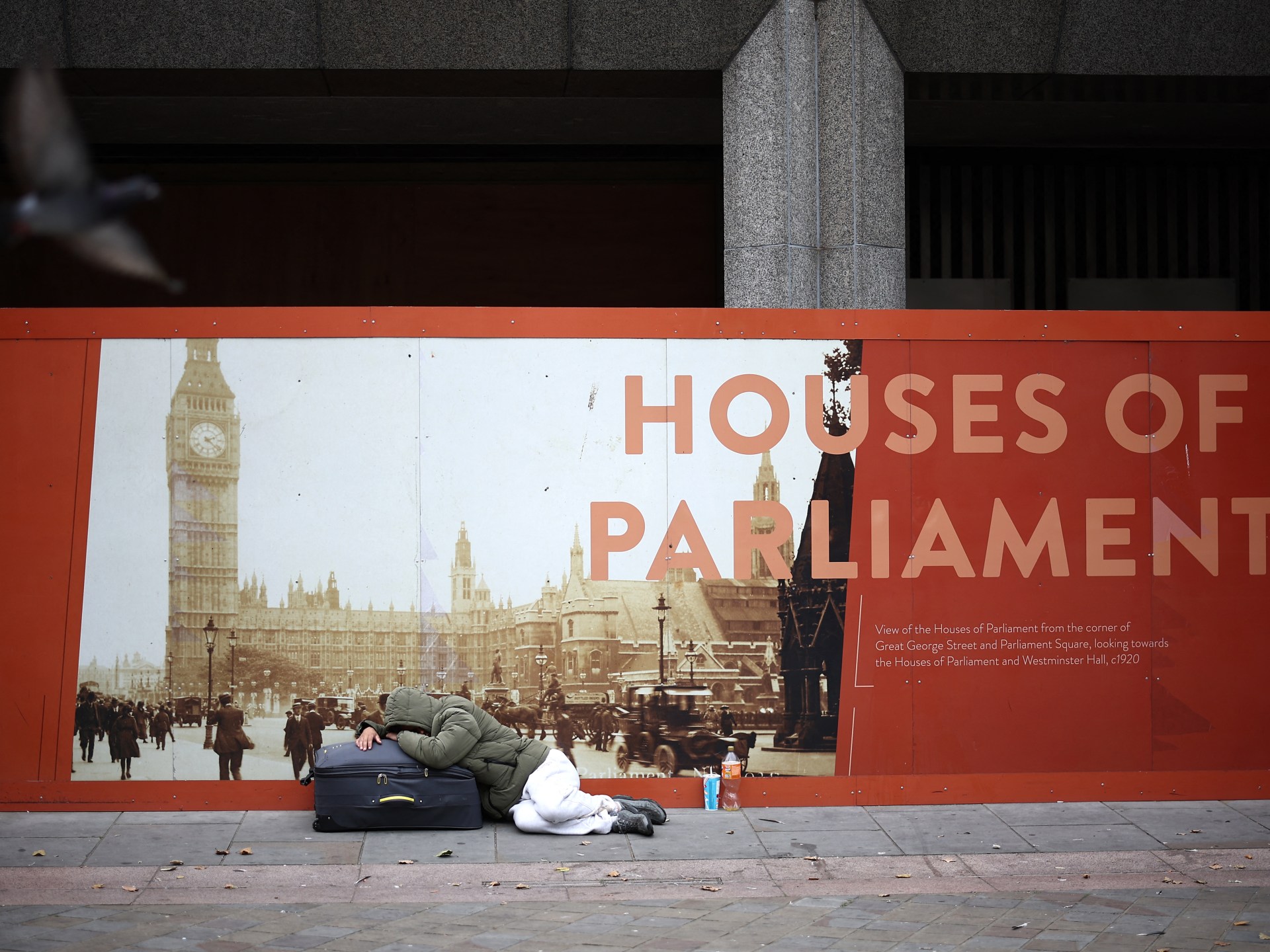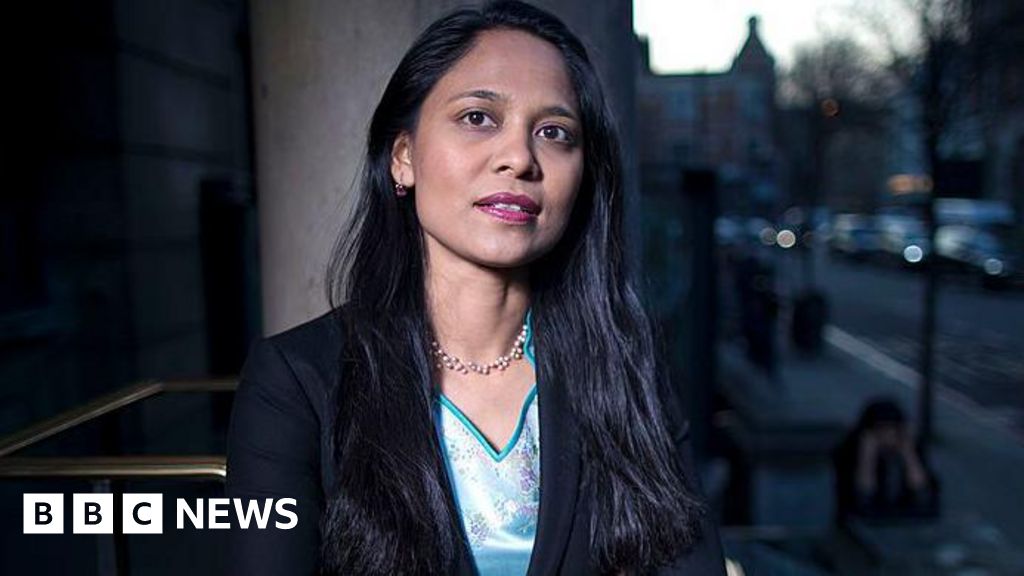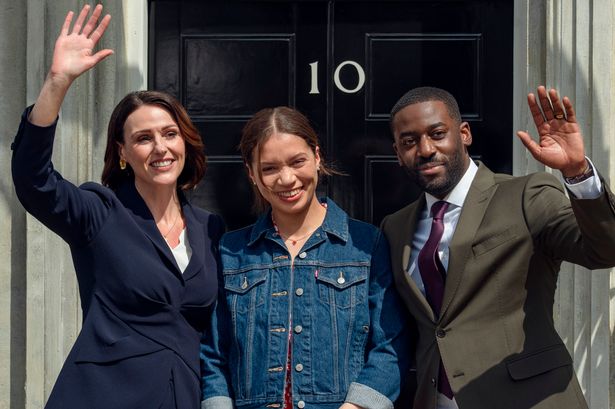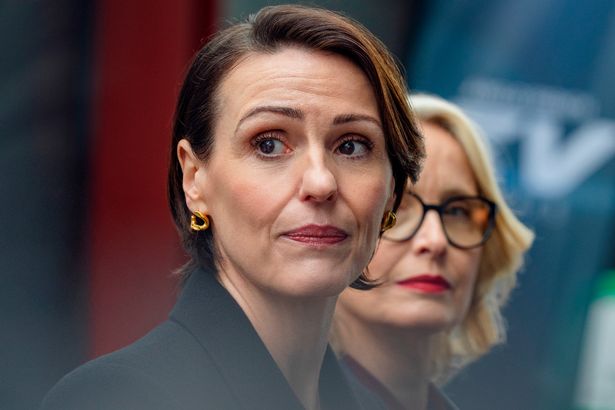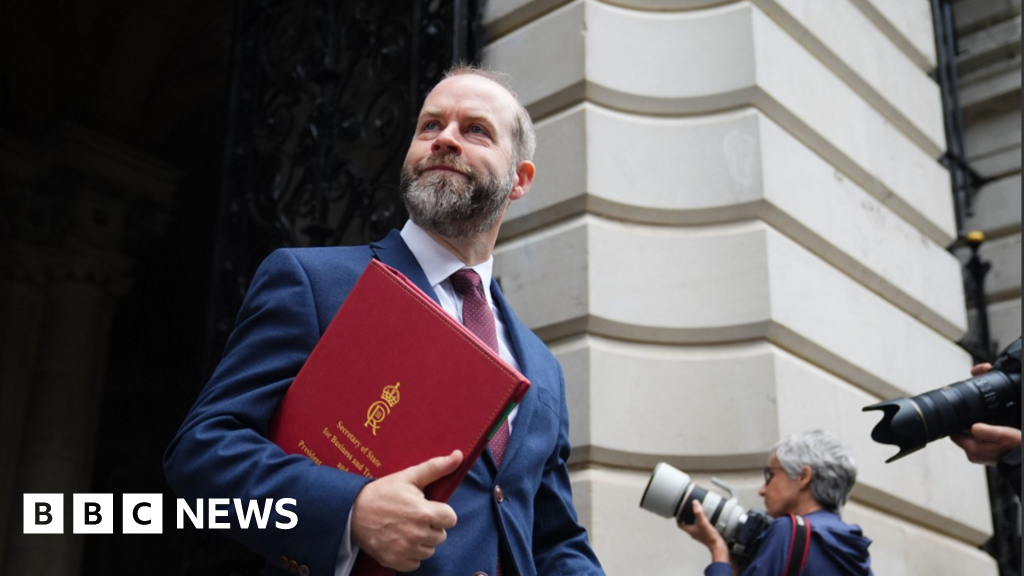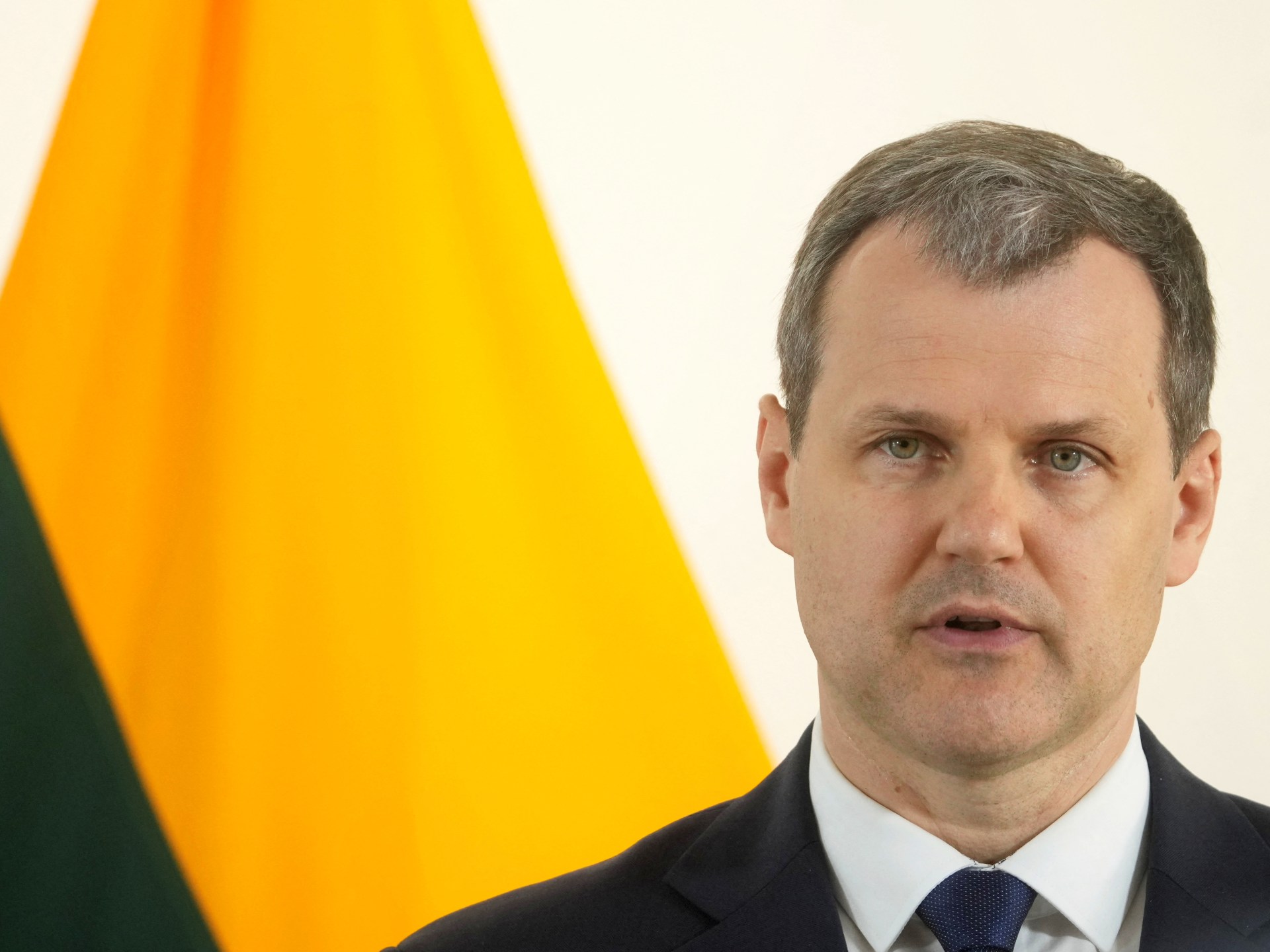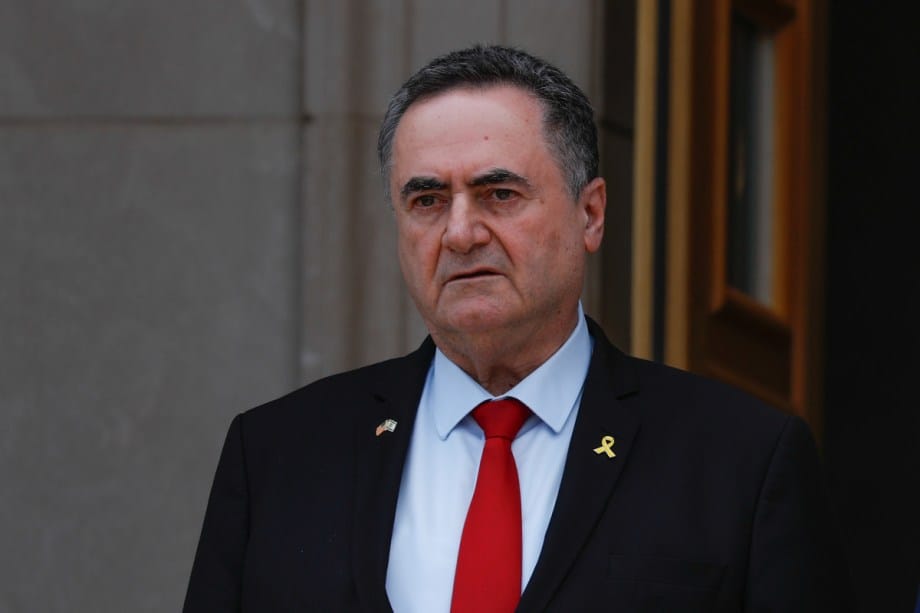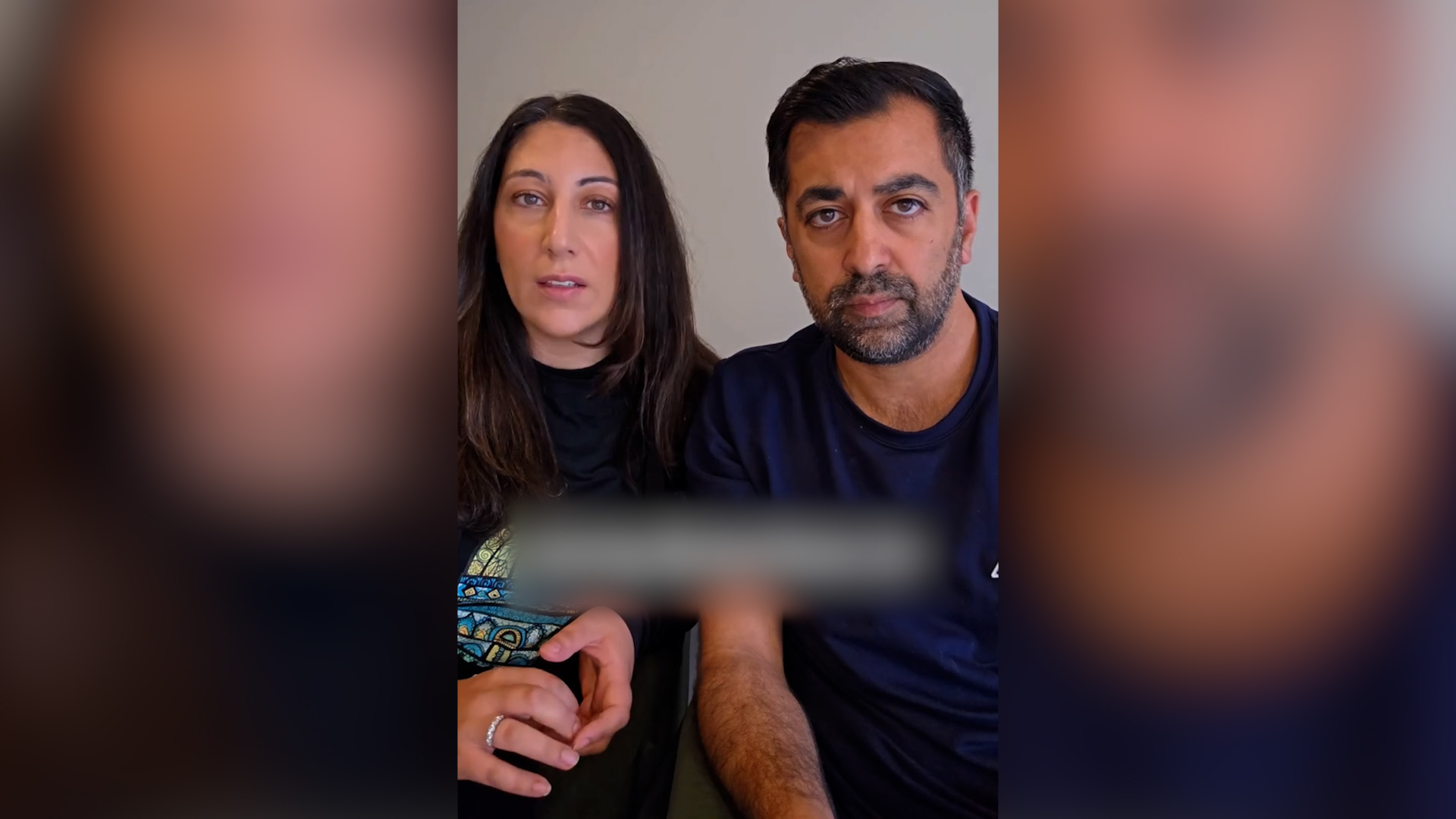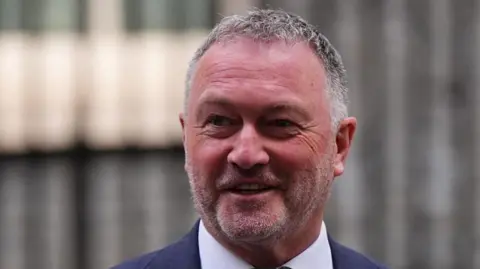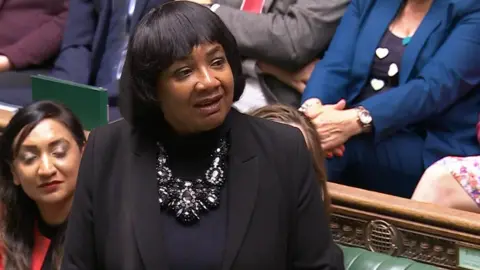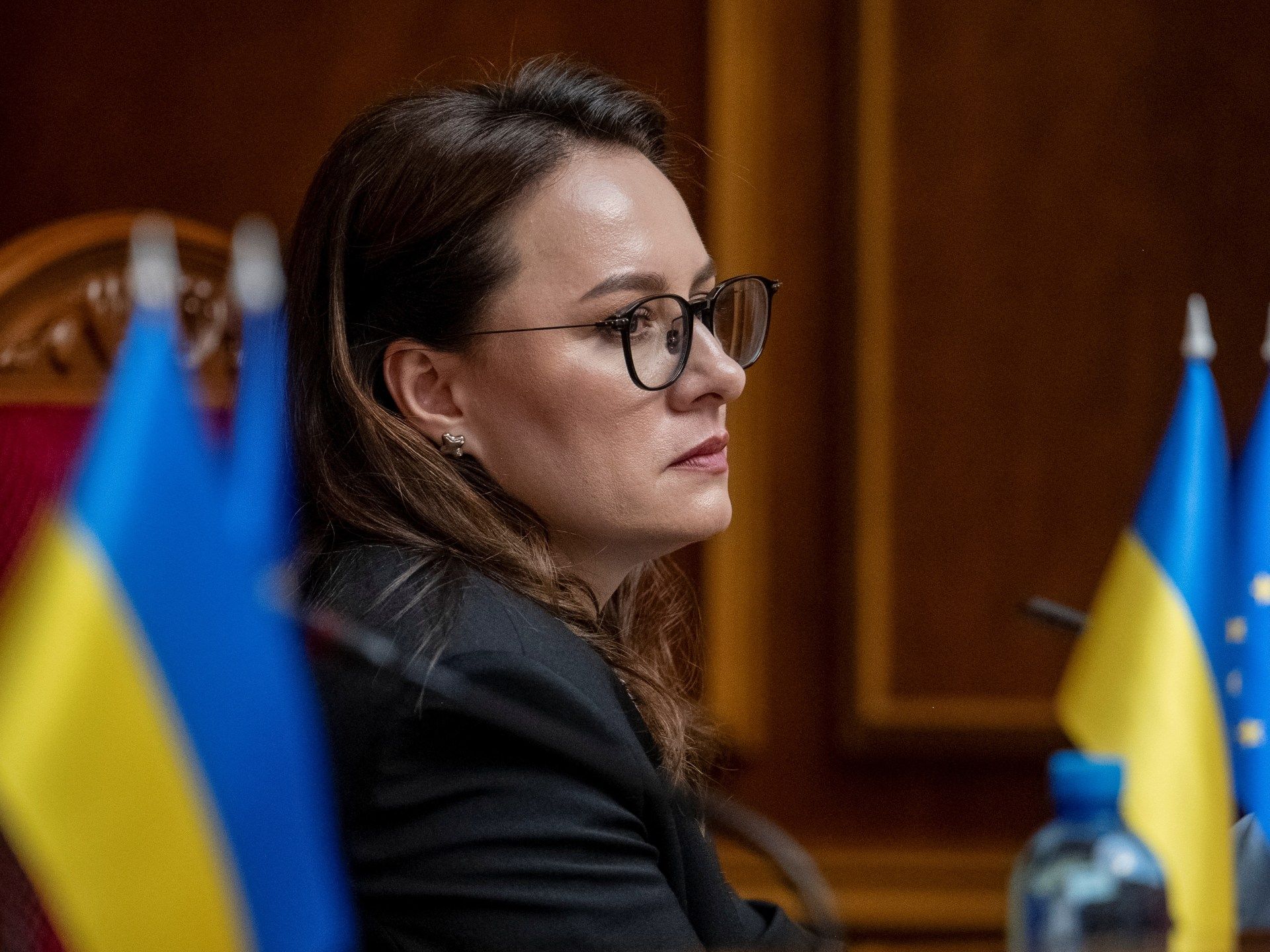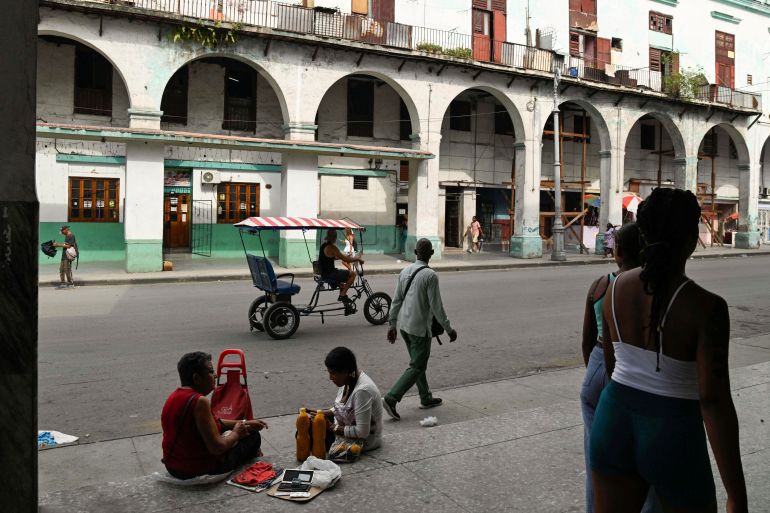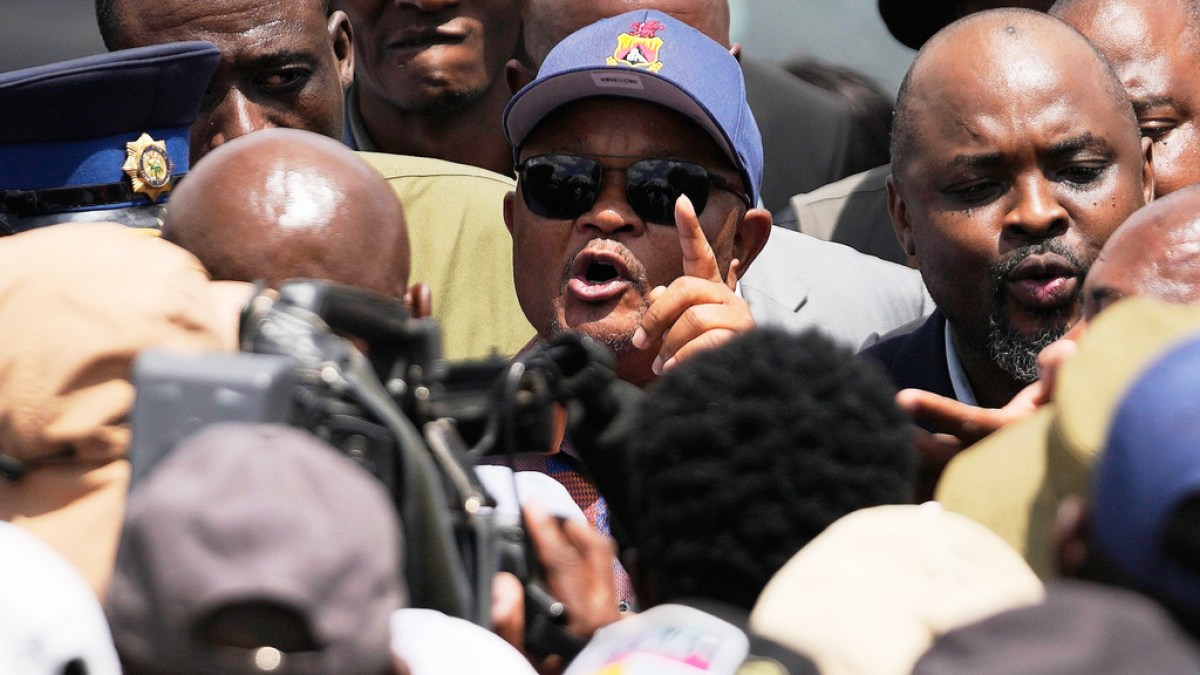After gracing the Weatherfield cobbles and other hit shows, Suranne Jones stars in Netflix’s political thriller Hostage, sharing the spotlight with a grime star.
Bombshells, diplomacy and danger collide in Matt Charman’s new thriller Hostage – and some grime fans might be surprised to see one of their favourite stars grace the screen.
From the cobbles of Coronation Street to Doctor Foster, Vigil and Gentleman Jack – winning a TV Bafta on the way – Suranne Jones has cemented herself as one of Britain’s best-loved acting talents.
Now, the versatile star is taking on her most powerful role yet – quite literally – as the British Prime Minister in Hostage, Netflix’s explosive new political thriller from Oscar-nominated Matt Charman (Bridge Of Spies).
In Hostage, Suranne plays Abigail Dalton, a politician plunged into chaos when her husband, Dr Alex Anderson, is kidnapped. And she made sure she was thoroughly prepared and did her homework.
“I don’t think I’m allowed to say [who], but I did speak to three really high-up women from different parties,” Suranne, 46, says. “I read their books and I interviewed them, and that was very exciting.”
That attention to detail paid off. Abigail isn’t just a PM fighting for her family – she’s a woman balancing power and vulnerability. Portraying the latter involved getting close to her co-star and on-screen husband, Ashley Thomas, aka grime star Bashy.
“We did chemistry tests, and when he came in, it was just like, ‘Oh, you’re intriguing, handsome, lovely, smart, intelligent,’” Suranne remembers. “And then we met our daughter (Isobel Akuwudike), who is also brilliant. It was her first job.”
READ MORE: Teeth whitening solution so ‘effective’ shoppers of all ages love it is 30% off
Ashley also prepared thoroughly to portray medic Alex. He consulted real-life doctors, but it was the emotional weight of Alex’s kidnapping that hit the hardest.
“That was tough. Putting yourself in those places is heavy – especially as Alex is a father,” says Ashley. “The environment I’ve come from, I’ve witnessed and experienced a lot of trauma, so there were things I was able to pull from.”
While Abigail grapples with domestic turmoil, things aren’t calm across the Channel either. French President Vivienne Toussaint – played by French-American actress Julie Delpy – is battling her own political scandal after being blackmailed.
During a state visit to the UK, Vivienne is forced to work with Abigail to expose a common enemy, despite their vastly different political backgrounds.
“She’s quite conflicted, which I liked,” Julie, 55, says. “She is someone who started out with ideals but had to give up part of what she believes in to get access to power.”
Vivienne is dangerous and captivating – a role that seemed made for Julie, who has spent her career tackling complex characters. “She might not be a very good person, but she’s more than just a bad guy,” Julie adds.
But beneath her icy exterior lies a secret: an age-gap relationship that threatens everything. “A May-September relationship these days isn’t a big deal – but this is a little darker and more complicated than that. A little more destructive,” Julie explains.
“Her husband is key in her ascent to power, so to put herself in this situation and put everything at risk is kamikaze.” Hostage shows Vivienne’s struggle to keep her Achilles’ heel hidden.
“She’s good at handling situations and power, but her weakness is her hidden side,” Julie says. “She’s romantically involved with someone she shouldn’t be and that’s a huge weakness for a politician – especially a woman.”
Before Sunrise actress Julie embraced the opportunity to portray someone morally grey. “I loved the idea of playing someone very different from me,” she says. “She’s not the most likeable of characters, but that’s fine with me.
If they are unlikeable as a person, you find a way to approach them as a human being. When I played a Nazi character, she was obviously repulsive, but then you have to think that she sees it differently.”
Despite Vivienne’s complicated personality, Julie found herself intrigued by her. “It was interesting to see someone that seems so rational and together, but behind the mask, her life is a mess,” she says.
“I’m the opposite – I look messy and crazy, but I would never do what she does!” And when it comes to politics? “I’m not interested at all [in politics] because of the compromises you would have to make. I don’t even do that in the movie business, and you see a lot of people give up their morals to succeed. I’m not able to do that. I’m just not that kind of person.”
Julie’s first day of filming for Hostage set the tone that the tense series demanded. “I’m always nervous, and not just on the first day,” she admits.
“My first day on Hostage was a kissing scene – so it was even more stressful than usual. I didn’t know this person so I had to switch off my mind a little.”
If that wasn’t enough, the role involved linguistic hurdles, too. Julie had to learn the more official, formal speeches in English. “Those are hard enough in your own language, but to do them as a non-native speaker was tough,” she says.
Luckily, the tension on screen was offset by the real-life camaraderie with her castmates – particularly Suranne. “She’s a lovely person and a great actress,” Julie says.
“Sometimes, it takes a little time to find your way with certain people, but with Suranne it was immediate. I like communication to be quick and fast and clear, I have no time for ego and she’s like that as well. So it made it very easy.”
The friendly feelings appear to be mutual. Suranne revealed during a recent appearance on the Table Manners podcast, “There were a lot of unrepeatable stories, told in the make-up trailer. Julie would be talking in the corner, and then everyone would go quiet!”
Like this story? For more of the latest showbiz news and gossip, follow Mirror Celebs on TikTok, Snapchat, Instagram, Twitter, Facebook, YouTube and Threads.


